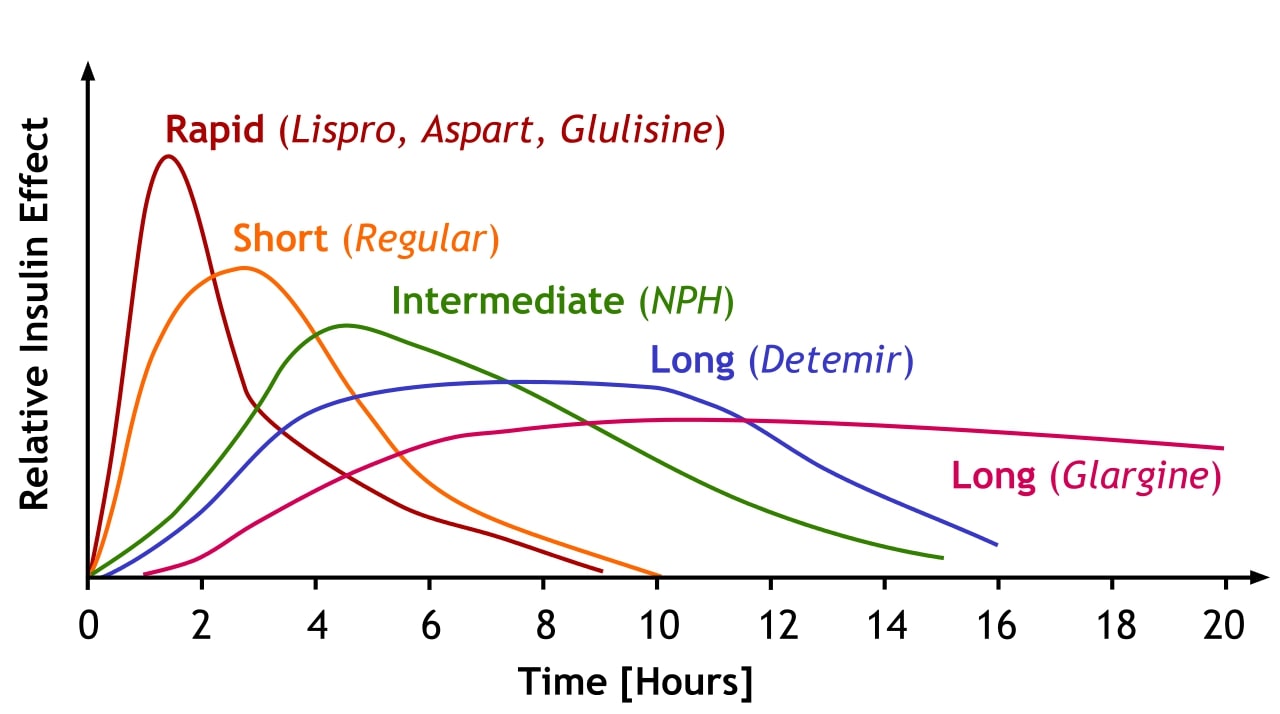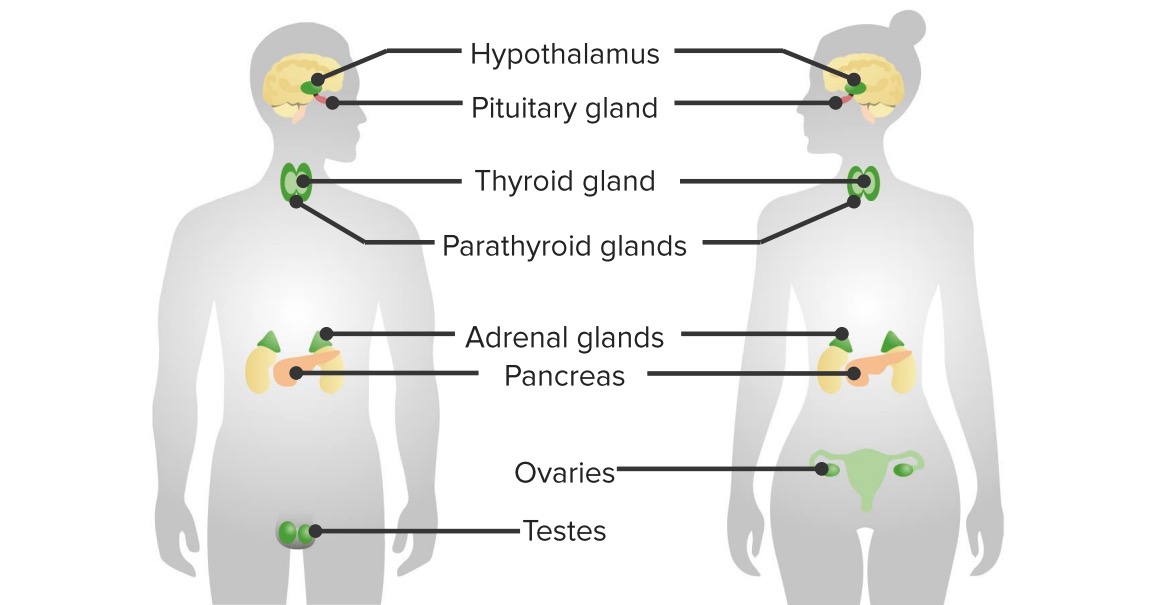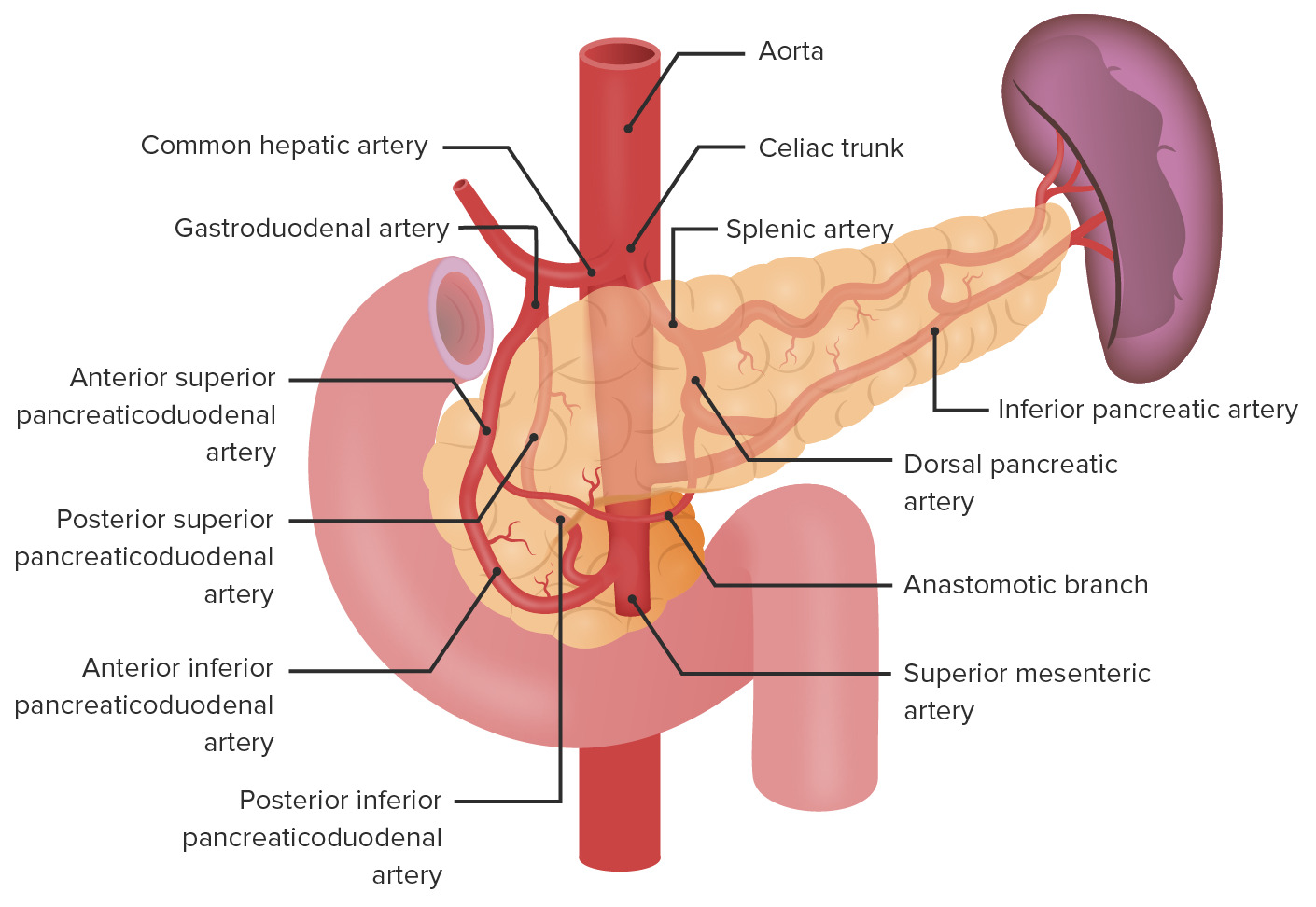Playlist
Show Playlist
Hide Playlist
Mechanism of Insulin Action & Types of Metabolism – Endocrine Pancreatic Hormones
-
Slides EndocrinePancreaticHormones EndocrinePathology.pdf
-
Download Lecture Overview
00:01 Mechanism action of insulin, it will bond to glucose transporters or the receptor. 00:07 When the receptor is bound to, there is something called autophosphorylation, which is important for you to know, intercellular beta subunit receptors and please note that it works from tyrosine kinase. 00:19 When you have tyrosine kinase, this then represents your phosphorylation, phosphorylation. 00:26 Now, every once in a while, they will ask about type 2 diabetes. 00:32 Think about type 2 diabetes, where is my problem? Sure, it could be decreased insulin, but really the problem could be at the level of the receptor, take a look at the picture here. 00:45 You see the phospholipid bilayer, you have a membrane, the spiraling blue ribbons that you see there, those are the receptors. 00:53 It is then bound to two beta subunits, then you have the autophosphorylation. 00:57 My point is this. 00:59 The receptors might be resistant to insulin which are the round green circles. 01:05 If the receptors to insulin are then insensitive or provide resistance, where is all my glucose? It is not being taken up by the cell, it remains back in my circulation, welcome to hyperglycemia, welcome to diabetes mellitus. 01:21 What was that signaling pathway through your receptor? Tyrosine kinase. 01:27 Oh no, you don’t find receptor resistance as being an answer choice. 01:34 Post receptor defect is a huge area of interest in diabetes mellitus and when you say post receptor defect, you are referring to the fact that the signaling through tyrosine kinase might not be taking place appropriately, type 2 diabetes mellitus. 01:51 Gene transcription can be up or down regulated depending as to what the level of glucose intake is. 01:57 In muscles and fat, glucose entry into the cell through plasma membrane is enhanced by these glucose transporters; glucose 4 transporters are in fact insulin dependent. 02:13 Which ones are independent? Glucose transporter 2. 02:18 4 are dependent, which in turn is regulated by insulin. 02:24 Think of skeletal muscles, how many limbs do you have, 1, 2, 3, 4, skeletal muscles; glucose transporter 4, adipocytes, also sensitive to insulin. 02:38 We will walk through more overall effect, what kind, anabolic or catabolic? Anabolic, anabolic, anabolic. 02:48 Insulin effect overall on your target. 02:50 There are three targets here, carbohydrates we will walk through first. 02:55 In the liver, in the fat, in the muscle, it is important that we pay attention to each. 03:00 In the liver, it is easy, decreased gluconeogenesis, decreased glycogenolysis, increased glycolysis, increased glycogenesis. 03:09 Insulin… Insulin on fat, we have glucose uptake via what kind of receptor? Glucose transporter 4 and we have glycerol synthesis. 03:22 What is the name of that lipase that you have within your adipocyte? Hormone sensitive lipase. 03:28 First, listen, lipase means what? Breakdown, breakdown of lipid. 03:35 What do you know about insulin? It is towards lipid. 03:39 So, what kind of effect does insulin have on hormone sensitive lipase? Inhibition, inhibition, inhibition. 03:47 What about muscles? Anabolic, increased glucose uptake, increased glycogenesis and glycolysis. 03:54 Now, before we move on, is there any such pathway in your muscle that contributes to gluconeogenesis? Never. 04:06 In the muscle, there is never any gluconeogenesis, right? So, therefore, if it requires glucose, it will break down glycogen. 04:14 Sure, you will have glycogenolysis, if it requires glucose, or it will follow what’s known as Cori cycle. 04:23 Keep that in mind, they love that from biochemistry and physiology. 04:27 Let’s talk about fat, what is my topic? Insulin. 04:31 What are you going to do with fat in insulin? Build, build, build, build, therefore promotes lipogenesis, inhibits lipolysis. 04:41 The fat, if you talk about lipid, adipocytes. 04:46 That glycerol that is being formed is then being brought to the adipocyte in which it is then being contributed or bound to your 3 fatty acids. 04:58 So, you are going to increase your fatty acid and you have a glycerol, welcome to triglycerides, tri means fatty acids, 3 of them, and glycerol means what is being formed. 05:12 Collectively we will then have triglyceride storage. 05:17 What about lipolysis in adipocytes? Obviously inhibition, you inhibit this with? Good, hormone sensitive lipase has been inhibited. 05:26 Fat metabolism. 05:27 Let’s talk about protein metabolism. 05:31 In the liver, it is going to decrease protein breakdown; up in the muscle or in the muscle, you are going to have muscle build, right, anabolic, anabolic, anabolic. 05:40 So, we have increased amino acid uptake, increase, increase protein synthesis. 05:44 A nice overview, biochemically, huh, of insulin, so therefore, this sets us up beautifully into what is going to happen with diabetes mellitus.
About the Lecture
The lecture Mechanism of Insulin Action & Types of Metabolism – Endocrine Pancreatic Hormones by Carlo Raj, MD is from the course Pancreatic Disease and Diabetes.
Included Quiz Questions
What is activated when insulin binds to its receptor?
- Tyrosine kinase
- Serine-threonine
- G-coupled protein
- JAK-STAT
- Ras-Raf
Which receptor induces glucose uptake in skeletal muscle and adipose tissue and prevents it from being taken up by pancreatic islet cells and RBCs?
- GLUT-4
- GLUT-1
- GLUT-2
- GLUT-3
- GLUT-5
What is NOT an effect of insulin?
- Increased hormone-sensitive lipase
- Increased glycerol synthesis
- Increased glycolysis
- Increased synthesis of triglycerides
- Increased fatty acid synthesis
After a high-protein meal, what occurs in skeletal muscle due to the effects of insulin?
- Increased amino acid uptake
- Decreased protein synthesis
- Increased protein breakdown
- Increased gluconeogenesis
- Increased glycerol synthesis
Customer reviews
5,0 of 5 stars
| 5 Stars |
|
5 |
| 4 Stars |
|
0 |
| 3 Stars |
|
0 |
| 2 Stars |
|
0 |
| 1 Star |
|
0 |






